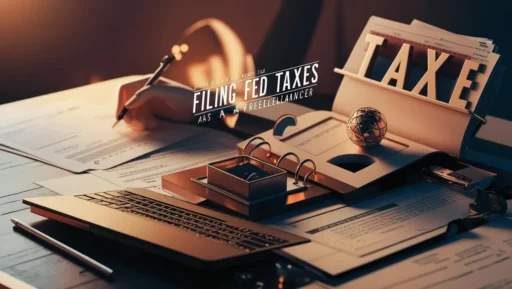Demystifying Taxes for Freelancers
One of the most intimidating aspects of freelancing—especially for newcomers—is managing and filing taxes. Unlike traditional employees, freelancers don’t have taxes automatically withheld from their payments, and they face a variety of additional forms, deductions, and legal responsibilities. While the process can seem complicated at first, developing an organized approach will not only help you stay compliant but can also save you money and stress in the long run. This article explains, step-by-step, how freelancers can prepare for, manage, and file their taxes with confidence—wherever they live.
> Note: This article provides general information—always consult a qualified tax professional or accountant who understands local laws for advice tailored to your unique situation.
Understanding Your Tax Responsibilities as a Freelancer
As a freelancer (often categorized as self-employed or an independent contractor), you are responsible for reporting all income from your freelance work—no matter the platform, client, or format.
Key obligations typically include:
- Paying income tax: On all freelance earnings, whether full-time or a side hustle
- Self-employment tax: Covers social security and Medicare (in many countries)
- Quarterly estimated tax payments: Many jurisdictions require periodic recurring payments, not just annual filing
- Issuing and receiving tax forms: Such as 1099-NEC in the US or the equivalent in your country
Filing requirements and forms vary by country, so research your local or national tax authority for specifics.
Organizing Your Financial Records
The secret to smooth tax filing is systematic record keeping. Here’s what you need to track:
- All sources of income: Payments received, invoices, payment processor statements (PayPal, Stripe, bank transfers)
- Business expenses: Office supplies, software subscriptions, internet bills, advertising, website hosting, travel costs for work, phone bills, etc.
- Receipts and invoices: Save digital or paper receipts for every deductible expense
- Tax-deductible purchases: Any costs necessary for running your freelance business
Use spreadsheets, accounting software (like QuickBooks, FreshBooks, or Wave), or hire a bookkeeper if possible. Organize documents by year and keep everything for a minimum period (usually 3–7 years, depending on your country’s requirements).
What Can Freelancers Deduct?
Business expenses help offset your income, meaning you only pay taxes on your profit (income minus expenses).
Common deductions for freelancers:
- Home office expenses (portion of rent, utilities, or mortgage interest dedicated to your workspace)
- Computer, software, and hardware purchases
- Website costs (domain, hosting, design)
- Marketing and advertising
- Professional memberships, courses, and subscriptions
- Phone and internet (proportional to business use)
- Travel, meals, and lodging (when necessary for work)
- Health insurance for the self-employed (consult local rules)
Pro tip: Only claim expenses legitimate and strictly related to your freelance activity—improper deductions can trigger audits or penalties.
Making Quarterly Estimated Tax Payments
In many countries (e.g., the US), freelancers must pay “estimated taxes” each quarter if tax isn’t withheld from their paychecks. You estimate your annual income, divide your total tax liability by four, and make payments throughout the year.
Why is this important?
- Avoids underpayment penalties and surprises at tax time
- Provides more manageable cash flow than a large annual bill
How to calculate:
- Use last year’s tax bill as a guide, or estimate expected income and expenses for the year
- Many tax software solutions help calculate estimates
Missed payments usually result in a small penalty, but consistent lateness can lead to larger fines.
Which Tax Forms Will You Need?
Depending on where you live and work, common forms include:
- In the US: IRS Form 1040 (individual tax return), Schedule C (profit or loss from business), and Schedule SE (self-employment tax)
- In the UK: Self Assessment tax return and supplementary pages
- In Canada: T2125 Statement of Business or Professional Activities
- In the EU and elsewhere: Consult your revenue authority for the freelance/self-employed return forms
Clients may also send you summary forms (like 1099-NEC) if you earned more than a certain threshold.
Double-check: Every country, and sometimes every state or province, has unique compliance rules.
Filing Your Taxes: Step-by-Step
- Add up all freelance income from all sources and clients.
- Subtract allowable business expenses to find your taxable profit.
- Complete the relevant tax forms and include Schedule C or local equivalents for business income.
- Calculate and pay self-employment tax (or national insurance/social contributions).
- Include any other applicable credits, deductions, or taxes.
- File by the official deadline.
If you have made estimated payments, enter those amounts; they’ll be credited against your total liability.
Tax Tips for Freelancers
- Open a separate business bank account to track freelance income and expenses.
- Set aside 20–30% of each payment in a separate account for taxes.
- Use accounting software or hire a professional to simplify preparation and maximize deductions.
- Review and update your local tax regulations each year—laws and rates can change.
What If You Can’t Pay Your Whole Tax Bill?
Don’t panic. Most tax authorities offer payment plans for those who file on time but can’t pay the full amount. Always file your return, even if you owe money—failure to file usually brings harsher penalties than late payments.
Working Internationally: Special Considerations
Freelancers who serve international clients or live as digital nomads may have cross-border tax obligations, such as tax treaties or foreign income exclusions. If you work worldwide, consult an accountant experienced in international finance to ensure compliance in both your home and any destination countries.
The Benefits of Staying Tax-Savvy
Mastering your tax process is more than a legal necessity—it’s a critical piece of running a profitable, sustainable freelance business. Well-organized records, timely payments, and smart deductions mean peace of mind and more money in your pocket.
Approach your taxes as you would a client project: with preparation, attention to detail, and professionalism. You’ll thank yourself come tax season.

